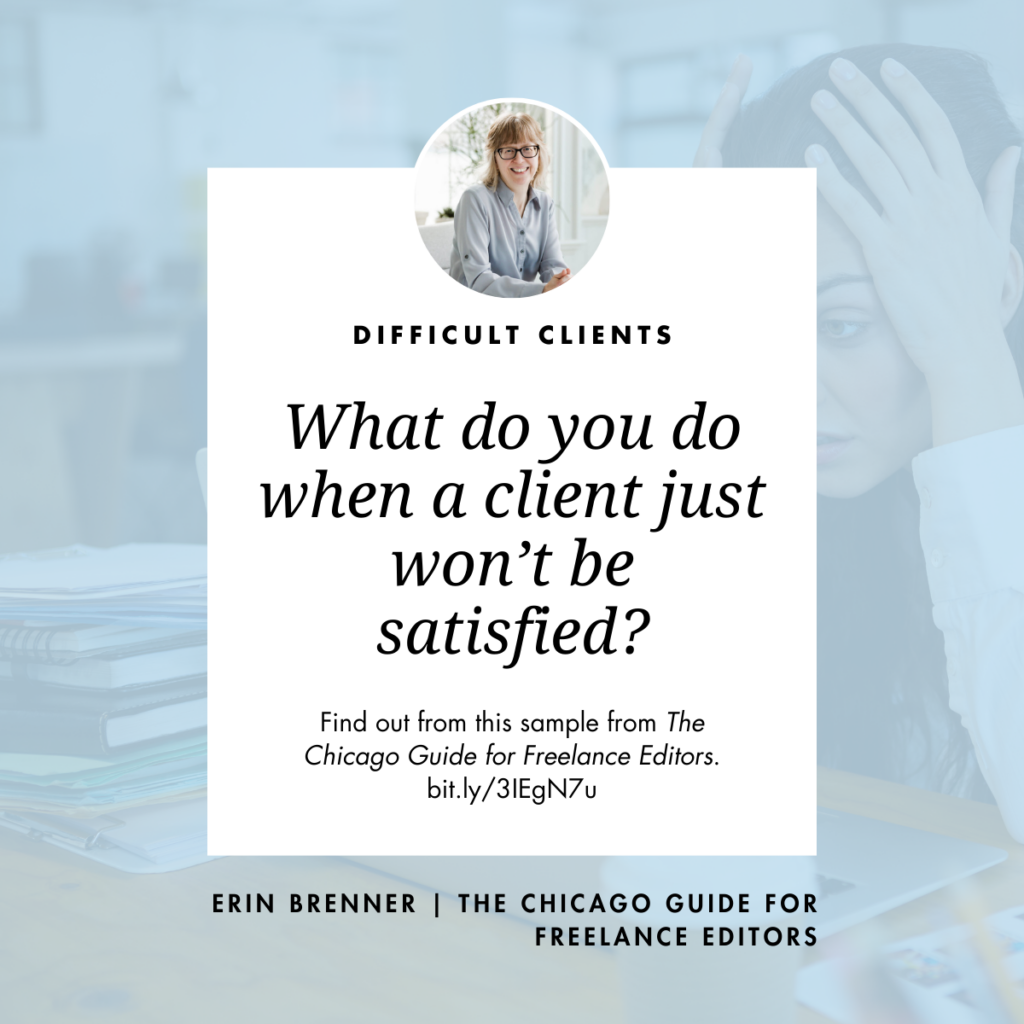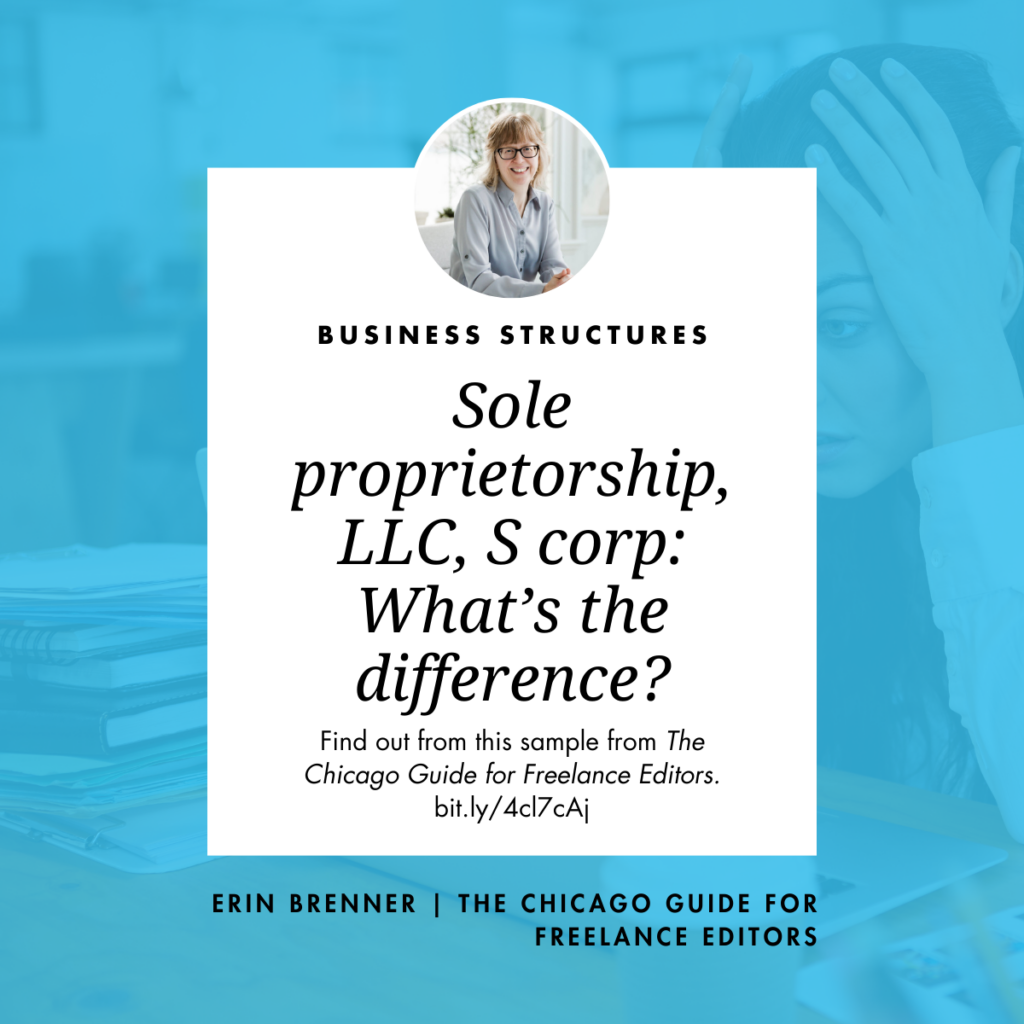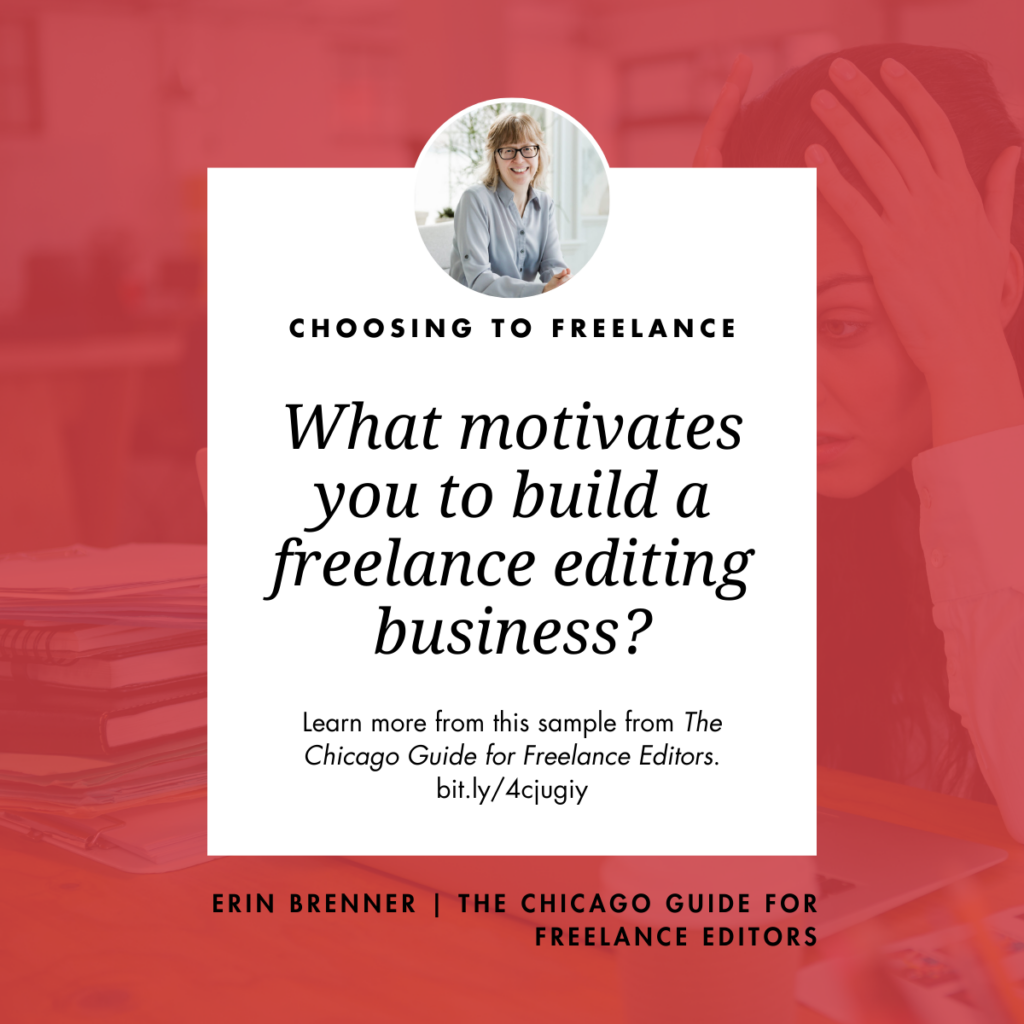Think Like a CEO
The first time I called myself a CEO, I felt like an impostor. I was the only one in my business at that time. It took some help from a smart business coach to see that I wasn’t just an editor; I was also the leader of my business. My success depended entirely on me, the same way your mindset relies entirely on you.
Here’s the tricky part: What does success mean to you? You set your first financial goal in chapter 2, but success is about more than money. Only you can determine what your business goals are. To do so, you need a clear understanding of what you’re setting out to achieve. When you’re just starting out, it might be to land a regular client or to see your name on an acknowledgments page. Once you’ve been freelancing for a bit, you might have other goals for your business, such as attracting a new type of client, offering a new service, or increasing your profits.
Most CEOs are good at writing goals. To be a successful freelancer, you must put your CEO hat on and take the time to dream about what you want to do and make a plan for getting there. In this chapter you’ll work on creating SMART goals for your business (more on SMART goals below). You’ll ask yourself questions like “What steps will I take to reach my earnings goal? How will I know I’m on the right path?”
It’s not enough to set goals, as you might have already realized. You’ll also want to do the following:
- Create a workable plan that includes timelines, steps, and metrics.
- Follow the plan, step-by-step. If you get stuck on a step, work through the difficulty.
- Continually monitor results.
- Make minor adjustments as you go along.
- Periodically review progress. What could be improved? What works and what doesn’t?
- Apply what you learn from your review and keep going.
Here’s the thing: no plan is guaranteed to work. Growth is a messy process, with mistakes being an important way that we learn. Ignoring problems won’t change the results. Only by acknowledging when your plan isn’t working, learning from your mistakes, and actively changing what you’re doing can you resolve problems and reach your goals. And the only way to know if you need to change course is to ask questions and measure progress.
Reproduced with permission from The Chicago Guide for Freelance Editors: How to Take Care of Your Business, Your Clients, and Yourself from Start-Up to Sustainability by Erin Brenner, forthcoming from the University of Chicago Press in April 2024. © 2024 by Erin Brenner. All rights reserved.







